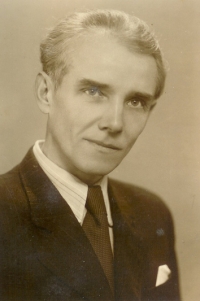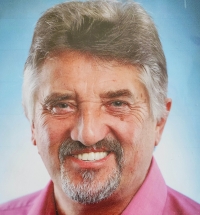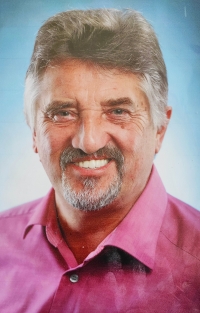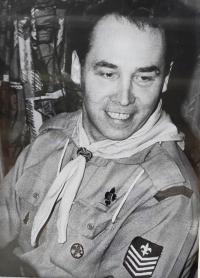Always with a clean state, do not give up and do not betray
Milič Šimáně was born on December 14, 1954 in Náchod. His father Jiří Šimáně, nicknamed Šíp, took part in the post-war reconstruction of Junák (a czech Scout unit) in Náchod, and in 1947, at the age of nineteen, he allegedly became the youngest district commander of Junák in Czechoslovakia. After the start of the communist regime, he and his wife Vlasta were persecuted and could not practice their teaching professions. Their children, Milič and Dagmar, then had difficulty admitting to study. They did not allow their parents to return to education until 1960, when they entered the Hořičky Elementary School for the Deaf. After the restoration of Junák in 1968, his father again became the district commander and Milič Šimáně became the advisor of the first division. With the arrival of normalization, not only was the scout disbanded again, but the father again had to leave his teaching profession, work in a working-class position and, as an enemy person, find himself in the State Security search. On the morning of November 11, 1975, Jiří Šimáně was found dead at his workplace in a brick factory in Miskolezy near Česká Skalice. His death is still shrouded in strange circumstances. Milič Šimáně also tried to resist the regime and a few years after Česká Skalice he secretly distributed information leaflets and also sabotaged the production in the national company MILETA in Hořice. Finally, in 1982, he emigrated with his wife and his daughter to the Federal Republic of Germany. He came to Czechoslovakia again after the fall of the communist regime in 1990. He got married for the second time and stayed in Germany. In May 2013, he participated in the ceremonial unveiling of his father‘s monument at the Municipal Office in Česká Skalice, organized by the Jiří Šimán Šíp Youth Center.



